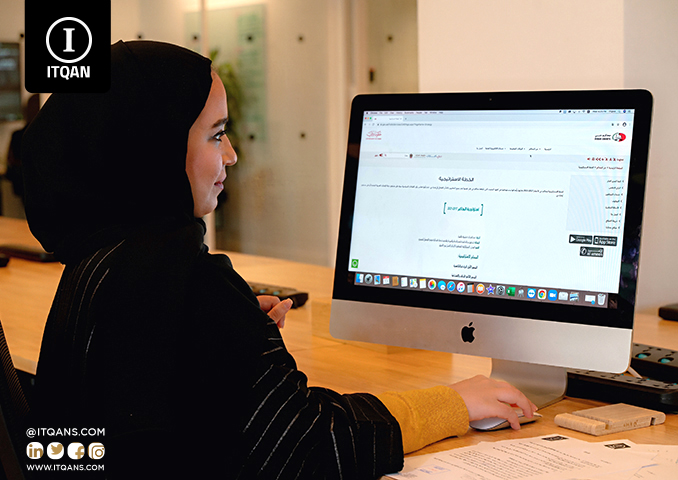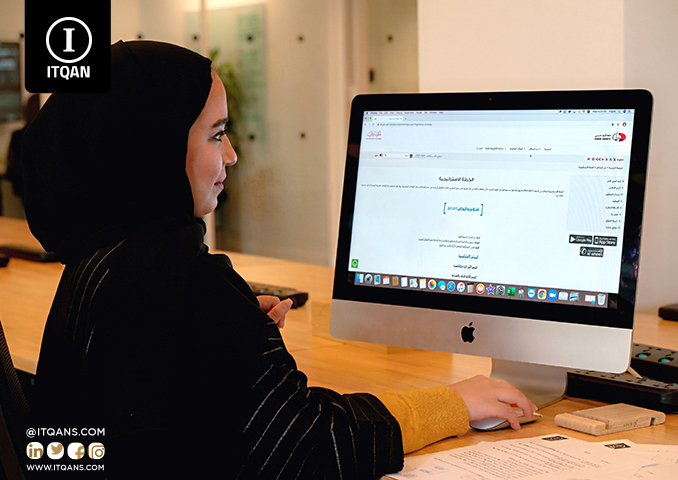Import and export laws in the UAE. The United Arab Emirates is one of the leading countries in the field of import and export in the world. Import and export laws in the UAE are considered one of the crucial factors in ensuring the success of international trade operations. In cooperation with Itqan, companies and individuals can benefit from specialized expertise and services to understand and comply with these vital laws.
Import and export laws in the UAE include several key aspects. First, importers and exporters must obtain the necessary licenses from the relevant government agencies. Itqan Company provides support and assistance in determining the required licenses and facilitating the process of obtaining them.
Second, importers and exporters must comply with customs laws and regulations. These laws include paying customs duties and submitting the necessary documents. Itqan Company provides advice and counsel regarding customs and facilitating import and export procedures.
Third, the goods must be classified according to the international customs classification system. Itqan Company provides the necessary consultation to determine the correct classification and compliance with the specified requirements.
Finally, there are many special laws that must be adhered to in the field of import and export. These laws include safety, health, environmental, intellectual property rights, and others. Itqan Company provides the necessary advice and consultation to ensure compliance with these special laws.
In short, UAE import and export laws are vital aspects of international business success. Thanks to Itqan Company, companies and individuals can benefit from support and specialized services to understand and comply with these laws, which facilitates the import and export process and ensures success and growth in the global market.

Documents required to import goods into the UAE
The United Arab Emirates is one of the most prominent business destinations in the world, home to many thriving business projects and opportunities. In order for the process of importing goods to the UAE to be successful, importers must adhere to the import laws and regulations and submit the required documents. There are several important documents that must be submitted to the competent government authorities to import goods into the UAE. Among these documents are:
- Trade Invoice: The trade invoice is one of the most important documents required, as it contains detailed information about the imported goods, such as quantity, weight, value, origin, and destination. The invoice must be issued by a recognized and reliable company.
- Packing List: The packing list contains details about the packaging of imported goods, including dimensions, weight, and packaging method. It requires compliance with specific packaging standards to ensure that goods arrive safely.
- Certificate of Origin: The certificate of origin identifies the actual source of the goods and proves that they comply with applicable international laws and regulations. The certificate of origin is issued by the competent government authorities in the country of origin.
- Certificate of Conformity: The Certificate of Conformity is proof that the imported goods conform to the specified technical standards and specifications. This certificate is issued by recognized and accredited bodies.
- Shipping Document: The shipping document specifies the details of the shipment such as weight, size, shipping method, location, sending party, and receiving party. This document is provided by the shipping company or transportation company.
Besides these documents, there may be additional requirements and other documents depending on the type of goods and the industry in question. Itqan Company provides support and consultation to ensure the availability of all required documents and compliance with all laws and regulations related to importing in the UAE. In cooperation with Itqan Company, importers can benefit from specialized experience and knowledge in preparing and submitting all necessary documents, facilitating the smooth process of importing goods and ensuring compliance with government laws and regulations.
In short, the process of importing goods into the UAE requires the submission of many important and required documents. Importers must adhere to laws and regulations and provide correct and reliable documentation. Through Itqan, importers can benefit from experience and support to achieve a successful and efficient import process in the UAE.

Documents required to export goods from the UAE
Documents required to export goods from the UAE
The United Arab Emirates is considered one of the most important countries in the world in the field of international trade, as it is considered a major center for exporting goods to many countries around the world. In order to successfully export goods from the UAE, exporters must adhere to export laws and regulations and submit the required documents. The process of exporting goods from the UAE requires submitting several important documents to the competent government authorities. Below are some of the required documents:
- Trade Invoice: The trade invoice is one of the main documents in the export process, as it contains detailed information about the exported goods, such as quantity, weight, value, origin and destination. The invoice must be certified by the competent authorities and issued by a reliable company.
- Certificate of Origin: The certificate of origin identifies the true source of the goods and proves that they comply with international laws and regulations. The certificate of origin is issued by the competent government authorities in the Emirates and is approved.
- Packaging List: The packaging list contains details about the packaging method of exported goods, including dimensions, weight, and packaging method. Specific packaging standards must be followed to ensure that the goods arrive safely.
- Shipping Document: The shipping document specifies the details of the shipment such as weight, size, shipping method, location, sending party, and receiving party. This document is provided by the shipping company or transportation company.
- Certificate of Conformity: The Certificate of Conformity is proof that the exported goods conform to the specified technical specifications and standards. This certificate is issued by recognized and accredited bodies.
In short, exporting goods from the UAE requires submitting several important and required documents. Exporters must comply with laws and regulations and provide correct and reliable documentation. Through Itqan, exporters can benefit from experience and support to achieve a successful and efficient export process from the UAE.

Penalties for customs violations
Penalties for customs violations
Customs is an important aspect of international trade, as it aims to regulate the movement of goods and apply customs duties and taxes on imports and exports. In order to ensure compliance with customs laws and regulations, there are penalties imposed for customs violations.
- Penalties for customs violations: The penalties that can be imposed for customs violations vary according to the type of violation and the seriousness of the violation. Below are some common penalties for customs violations:
- Financial fines: Financial fines may be imposed on customs violators based on the value of the violating goods or irregularities in customs procedures. Financial penalties vary according to each country’s customs laws.
- Seizure of goods: Customs authorities can seize violating goods and prevent their export or import. The goods are seized until they are confirmed to comply with customs laws and the imposed financial fines are paid.
- Cancellation of customs privileges: In the event that serious customs violations are discovered or repeated by a company or exporter, the customs privileges granted to it within the framework of customs incentive programs can be cancelled.
- Legal accountability: If any person commits serious customs violations, he may be exposed to legal accountability by the judicial authorities. Legal penalties may include imprisonment and larger fines.
It is important to note that customs penalties and their application vary from one country to another, and may change with the passage of time and the development of customs laws and regulations. Therefore, business dealings, exporters and importers should adhere to customs laws and regulations and avoid any violations that lead to the imposition of penalties.
In brief, countries impose various penalties for customs violations, including fines, seizure of goods, cancellation of customs privileges, and legal accountability. These sanctions aim to ensure compliance with customs laws and protect the national economy from abuses and manipulation of customs procedures.
The importance of investing in the Emirates
The United Arab Emirates is one of the most attractive investment destinations in the world. The UAE has advanced investment legislation, advanced infrastructure, and a distinct geographical location, making it an ideal destination for businessmen and international companies. In this text, we will review the importance of investing in the Emirates and the benefits that can be achieved. The importance of investing in the UAE :
- Advanced business environment: The UAE provides an incubating investment environment for businesses, as it provides innovative investment legislation and laws that protect the rights of investors and encourage expansion and economic growth. The UAE also has few bureaucratic restrictions and simple procedures for establishing companies and facilitating business operations.
- Advanced infrastructure: The UAE has a modern and advanced infrastructure that includes airports, ports, road networks, and advanced communications services. This advanced infrastructure contributes to facilitating the movement of goods and people and enhances commercial and investment activity.
- Political and security stability: The UAE enjoys political and security stability, which provides a safe and reliable environment for investment. The UAE government works to provide economic and social stability and provide support and facilities to foreign investors.
- Access to global markets: The UAE is located in the heart of the Middle East, providing an opportunity to access a large, growing, regional and global Arab market. The UAE also provides a wide range of bilateral and multilateral trade agreements that enhance trade and investment opportunities.
- Economic Diversity: The UAE is considered a diverse investment destination, providing investment opportunities in various sectors such as energy, tourism, technology, trade and finance. This economic diversification allows investors to diversify their portfolio and reduce potential risks.
Investing in the UAE is an important opportunity for companies and businessmen seeking to expand their business and increase their profits. The UAE combines political and economic stability, advanced infrastructure, and access to global markets, which are key factors that make it a distinguished investment destination.
In short, investing in the UAE is an important investment opportunity thanks to the advanced business environment, advanced infrastructure, and political and security stability. The UAE provides investment opportunities in various sectors and access to global markets. Investors should take advantage of the support available and conduct a good study of the market before investing in the UAE.
Advantages of investing in the Emirates
The United Arab Emirates is one of the most prominent investment destinations in the world, as it has a number of features that make it attractive to global businessmen and investors. In this text, we will discuss the advantages of investing in the UAE and how it can bring benefits to investors. Advantages of investing in the UAE :
- Advanced investment laws and legislation: The UAE provides innovative and advanced investment legislation and laws that protect investors’ rights and encourage economic expansion and growth. This legislation guarantees the protection of intellectual property, freedom of financial transfers, labor rights, and other guarantees that contribute to attracting investors.
- Advanced infrastructure: The UAE has a modern and advanced infrastructure that includes airports, ports, road networks, and advanced communications services. This strong infrastructure provides a business-friendly environment, facilitates the movement of goods and people, and enhances commercial and investment activity.
- Economic and political stability: The UAE is considered one of the stable investment countries on the economic and political levels. The country has a stable political system and a safe and reliable security environment, making it a preferred destination for global companies and foreign investors.
- Access to regional and global markets: The UAE is located in the heart of the Middle East, and provides a gateway to a large, growing, regional and global Arab market. In addition, the UAE provides an extensive network of bilateral and multilateral trade agreements, opening the way for international trade and investment opportunities.
- Economic Diversity: The UAE is a diverse investment destination, providing investment opportunities in various sectors such as oil and gas, tourism, real estate, technology, heavy industries, and others. This diversity allows investors to diversify their investment portfolio and reduce potential risks.
- Government support and financial aid: The UAE government provides financial support and assistance to local and foreign investors, by providing loans, banking facilities, tax reductions, and customs exemptions. This support contributes to encouraging investment and enhancing economic growth in the country.
- Educated and multicultural workforce: The UAE has an educated and culturally diverse workforce, attracting global talent from different nationalities and backgrounds. This diversity contributes to enhancing innovation, knowledge exchange, and business development.
In short, it can be said that investing in the UAE has a number of attractive advantages, from advanced investment laws and advanced infrastructure, to economic and political stability and access to regional and global markets. Investing in the UAE is a promising option for investors looking for growth opportunities and diversification of their investments.
Learn about the import and export laws in the UAE
In conclusion, it can be said that import and export laws in the UAE are a vital element in promoting economic growth and expanding trade relations with other countries. In cooperation with Itqan Company, investors and businessmen can benefit from its knowledge and experience in this field to facilitate import and export operations and achieve maximum benefits.
Itqan provides a team specialized in import and export laws and dealing with relevant government agencies and international organizations. The company provides the necessary advice and guidance to investors regarding the legal procedures and customs and commercial regulations applied in the Emirates.
In addition, Itqan provides services such as developing import and export plans, organizing shipments and customs clearance, and following up on shipments and necessary logistical procedures. The company works to facilitate import and export operations and ensure compliance with legal requirements and customs regulations.
By utilizing Etqan’s expertise in the field of import and export laws, investors in the UAE can achieve efficiency and high efficiency in their business operations. In addition, the company can contribute to maintaining a good reputation for customers and providing high-quality services in accordance with international standards.
Overall, UAE import and export laws are an opportunity for investors to expand their business and achieve success in the global market. In cooperation with Itqan Company, investors can benefit from in-depth experience and knowledge in this field to achieve success and sustainable growth in the local and global market.
Frequently asked questions about import and export laws in the UAE
What are the documents required to import goods into the UAE?
Detailed commercial invoice. Customs declaration. Certificate of origin. Bill of lading. Health certificate if the goods are food. A certificate of conformity to specifications if the goods require it.
What are the documents required to export goods from the UAE?
commercial invoice. Customs declaration. Bill of lading. Certificate of origin.
Are there products that are prohibited from being imported or exported in the UAE?
Yes, prohibited products include weapons, drugs, some chemical products and pirated materials.
What are the import customs duties?
Customs duties vary based on the type of goods imported, and are usually 5% on most goods. Some goods are exempt from customs duties.
What are the customs duties on export?
The UAE does not impose export duties on most goods, but there may be export duties for some special goods.
Do you need a license to import and export?
Yes, individuals and companies need to obtain licenses from the competent authorities such as the Department of Economic Development and the Ministry of Economy.
What are the customs procedures in the UAE?
Customs procedures include submitting the required documents, paying customs duties, and customs inspection of the goods.
















